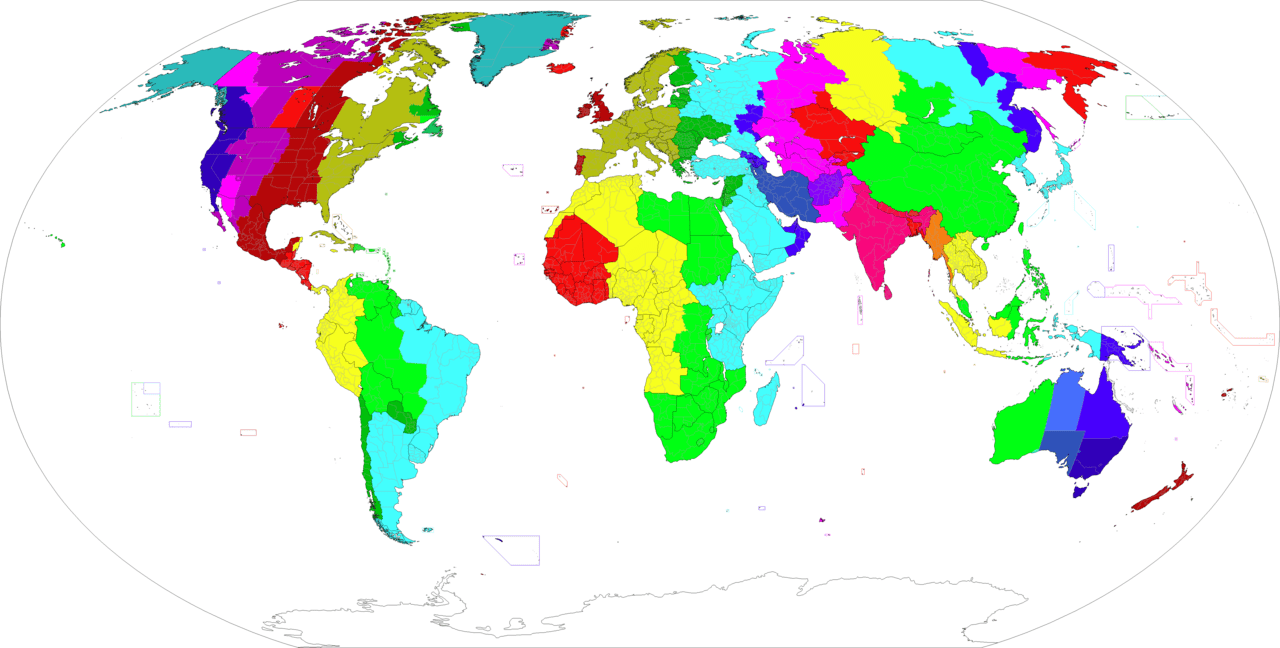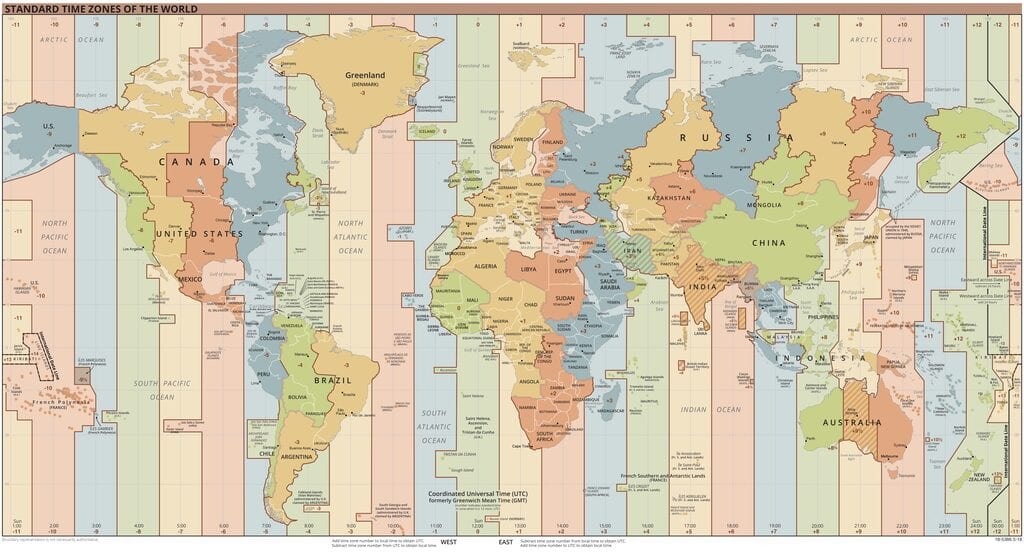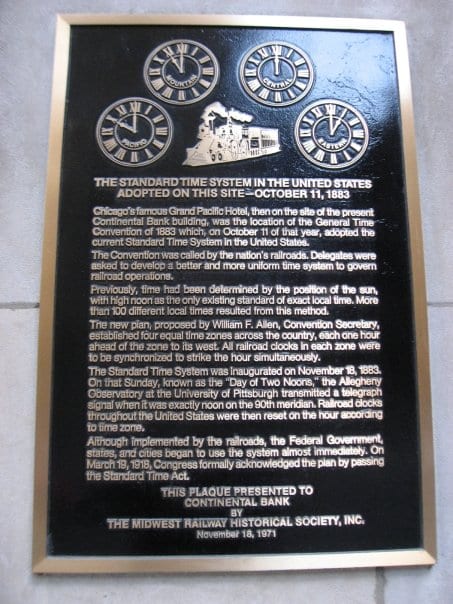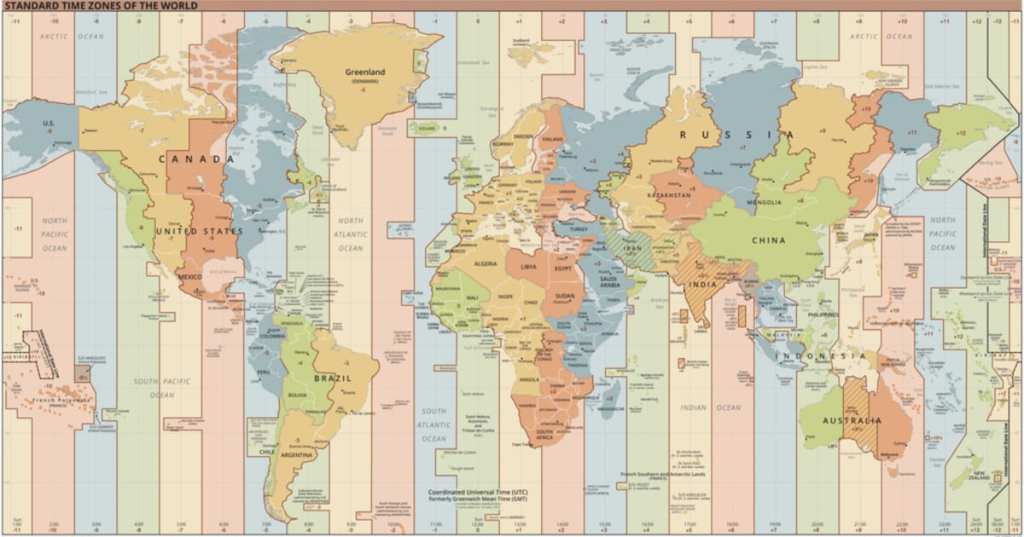If you have friends or family who live in different time zones, you know it can be tough to keep things straight. When is too early to send a text? Too late? Do they do Daylight Savings? When?
It’s enough to make you want to tear your hair out – or, in my case, just give up and send texts whenever you feel like it and figure they’ll get to it whenever they’re awake next.
So, why can’t the whole world just get it together? We could agree on a single time zone and all stay in it, for better or worse, don’t you think?
Well, listen. I’m sorry to be the one to tell you this, but it’s not all that simple.

Image Credit: Phoenix B 1of3, TZ master
Solar time, which is what creates time zones, is meant to keep clocks consistent wherever we happen to lay our head, and even though it can be a pain sometimes, most experts agree it’s a necessary evil.
Steve Hanke, a professor of applied economics, talks about why they were implemented in the first place.
“Time was only measured by placement of the sun, so the sundial dictated what time it was.
Noon in London, for example, came 10 minutes earlier than noon in Bristol, 120 miles (193 kilometers) to the west.
Even after people started using mechanical clocks in Europe in the 1300s, the inconsistencies persisted.”
Things started to get complicated with the advent of railways, and rail travel, in the 1800s. People were suddenly able to travel relatively quickly from one place to the next, and Hanke says that was trouble.
“People were missing trains, and you began to have near misses and train collisions occurring.
In the U.S., every city had a different time standard.
You had 300 local time zones in the U.S., though the railroads eventually condensed it down into 100.”
It was a Scotsman, Sir Sandford Fleming, who missed a train in Ireland and decided to fix things once and for all.
He divided the world into 24 time zones spaced at 15-degree intervals across the planet, and eventually, convinced the world to adopt his system.

Image Credit: Public Domain
Now, time was based not on the local solar day, but on how many time zones separated a location from the Royal Greenwich Observatory in the U.K. Greenwich Mean Time was determined by the average time of day when the sun passed over the Prime Meridian there.
On November 18, 1883, the North American railroads converted to a system of just four time zones – the same ones that remain today. Eastern, Central, Mountain, and Pacific time quickly became the standard across the United States.
The advent of air travel, then the internet and mobile devices brought us all closer together, regardless of what time is was here, and in our 24/7 culture, the whole time zone thing is again complicated.
That’s why Hanke and one of his colleagues, physics and astronomy professor Richard Conn Henry have proposed doing away with time zones all together, putting the world on universal time. They’re proposing that it be the same time everywhere, whether it’s dark or light.

Image Credit: Joe Smack
They say their system would make it easier to adjust to travel, for one, and would also mitigate issues of communication in businesses that operate on a global scale. Not only that, but the negative health effects of sleep deprivation and other issues for those who live on the western edges of time zones would also be eliminated.
Some people are already living on universal time, or “zulu time,” as pilots refer to it. Others, like financial traders and others who have to timestamp transactions, also find it easier to use a universal time.
Hanke and other proponents think that, though the idea would be an adjustment for sure, it would be brief. Within a generation, children would no longer associate a certain time with starting work or having breakfast. It might be more like it was when people rose, ate, and rested with the rise and fall of the sun, and nothing more.
When you put it that way, it makes sense. No matter what the clock says, it’s morning when the sun rises, lunch when it crests in the sky, and dinner when it sets.
A world that revolves around mealtimes is definitely something I could support.
How about you?






